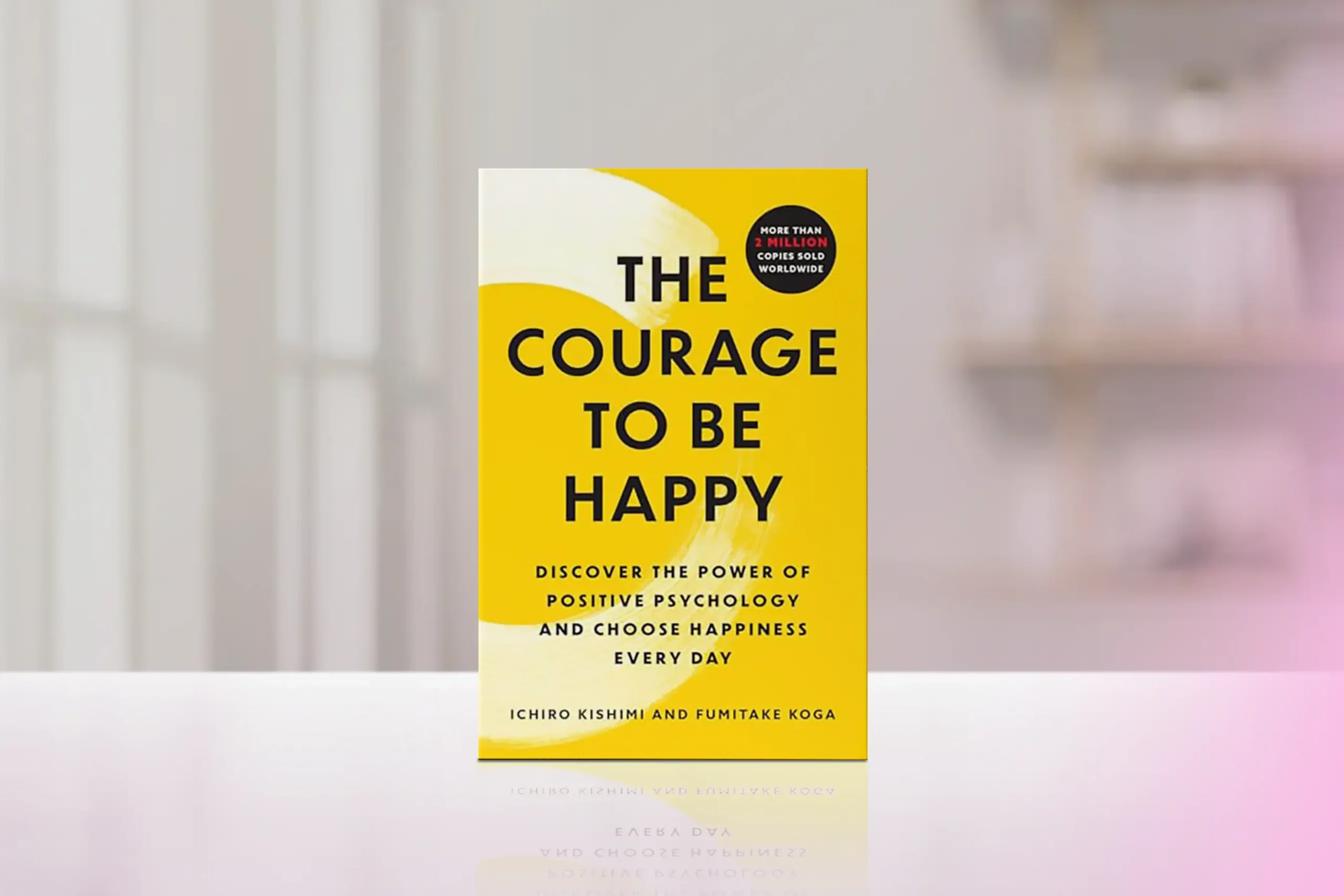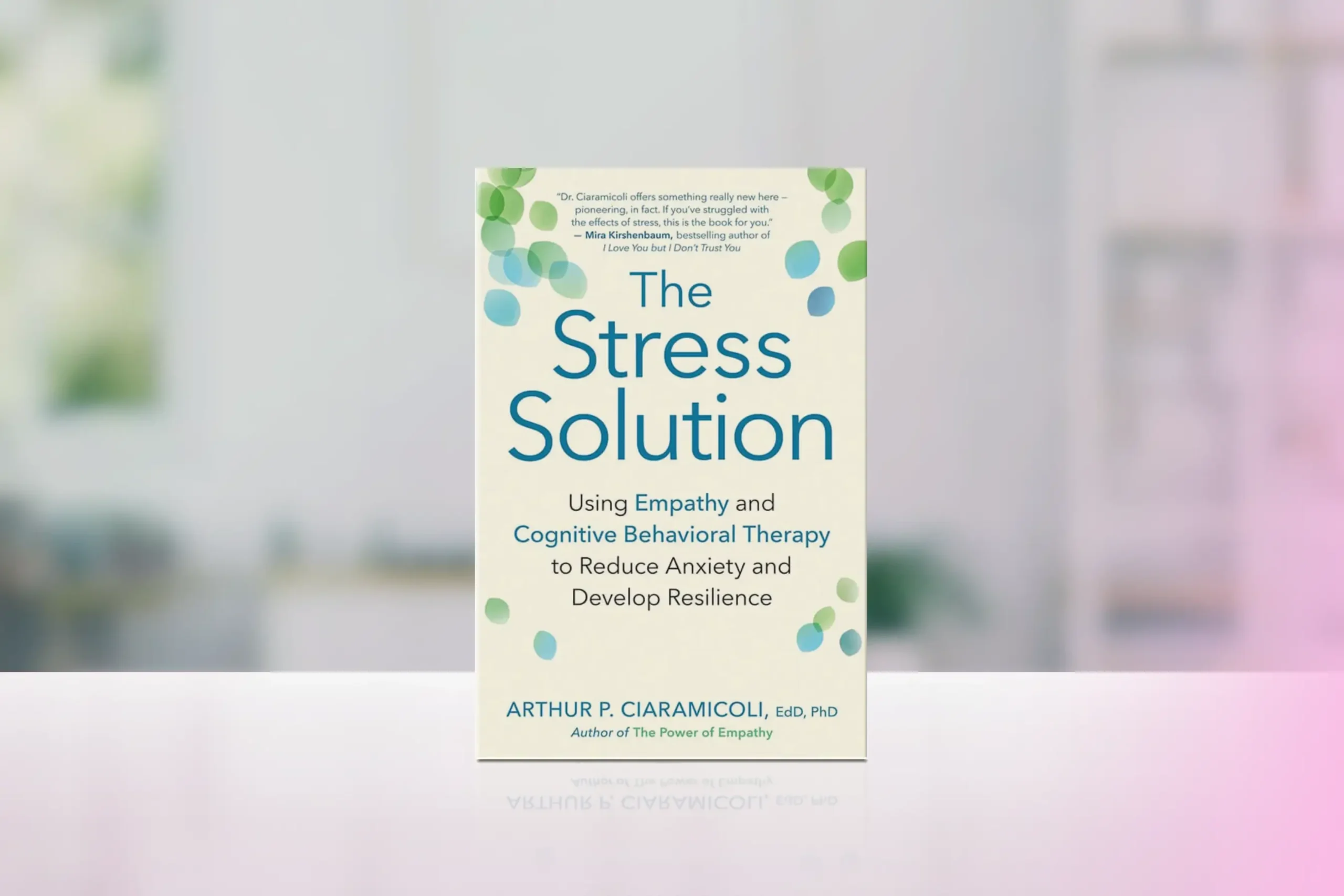When was the last time you truly put yourself first? In a world that constantly demands our attention, energy, and time, the importance of self-care often gets pushed to the back burner. We’re taught to hustle, to give our all, to keep pushing forward—but at what cost? The truth is, in our relentless pursuit of success and productivity, we’re facing an epidemic of burnout, stress, and declining mental health.
Inside this article:
1. What is Self-Care
Self-care isn’t about indulgent spa days or expensive retreats—it’s any intentional action you take to nurture your physical, mental, and emotional wellbeing. At its core, it’s about making time for yourself amid life’s demands, listening to your needs, and responding with compassion. This might look like a morning meditation, an evening walk, setting healthy boundaries, or simply taking a few moments to breathe deeply during a hectic day.
Making time for yourself isn’t selfish—it’s essential. When you prioritize self-care, you enhance your capacity to show up fully in all areas of life, from work to relationships. The strategies in this guide are designed to be simple, practical, and adaptable to your unique circumstances, helping you weave moments of self-care into even the busiest days.
Research consistently shows the powerful benefits of prioritizing self-care:
-
Self-care is strongly linked to improved mental health and well-being. (Source)
-
Self-care practices are associated with lower levels of depression and anxiety. (Source)
-
Consistent self-care improves sleep quality and general health. (Source)
- Self-care enhances productivity and reduces strain on healthcare systems. (Source)
- Self-care empowers individuals to manage their health and fosters resilience. (Source)
It’s time to redefine self-care as what it truly is: a fundamental aspect of a healthy, balanced life. Are you ready to prioritize yourself? Let’s embark on this journey to transform self-care from a guilty pleasure to an empowering daily practice that creates space for your wellbeing in meaningful ways.
For deeper insights into discovering your authentic purpose through self-care, read: How to Discover and Live Your Purpose.
Key Takeaways: Self-care isn’t a luxury but a necessary foundation for wellbeing that allows you to nurture yourself through intentional, compassionate actions that honor your needs.
2. Science Behind Self-Care
The benefits of self-care are more than just anecdotal; they’re backed by science. Let’s explore how self-care impacts our bodies and minds.
Physiological Benefits of Self-Care
- Stress Reduction: Chronic stress can wreak havoc on our bodies, leading to a host of health problems. Self-care activities like meditation, exercise, or even a relaxing bath can lower cortisol levels, reducing the harmful effects of stress.
- Improved Immune Function: When we take care of ourselves, our immune systems function better. Regular exercise, adequate sleep, and a balanced diet—all forms of self-care—can boost our body’s ability to fight off illness.
- Better Sleep Quality: Many self-care practices, such as maintaining a consistent sleep schedule or creating a relaxing bedtime routine, can significantly improve sleep quality. Better sleep, in turn, supports overall health and wellbeing.
Psychological Benefits of Self-Care
- Enhanced Emotional Regulation: Self-care practices like mindfulness and meditation can improve our ability to manage emotions, reducing anxiety and depression.
- Increased Self-Esteem and Self-Compassion: Taking time for self-care sends a powerful message to ourselves: “I am worthy of care and attention.” This can boost self-esteem and foster a more compassionate relationship with ourselves.
- Improved Cognitive Function and Creativity: When we’re well-rested and less stressed, our brains function better. Self-care can enhance focus, problem-solving abilities, and creative thinking.
The Mind-Body Connection in Self-Care
The mind and body are intimately connected, and self-care practices often benefit both simultaneously. For example, exercise not only improves physical health but also boosts mood and reduces anxiety. Similarly, practices like yoga combine physical movement with mindfulness, offering holistic benefits.
To explore the fascinating research on wellbeing and positive psychology, check out: The Science of Wellbeing: How Positive Psychology Can Transform Your Life.
Key Takeaway:The beautiful dance between mind and body means that caring for one naturally nourishes the other, creating a ripple effect of wellbeing that you can feel in both your physical vitality and emotional resilience.
3. Types of Self-Care
Self-care isn’t one-size-fits-all. It encompasses various aspects of our lives, and a well-rounded self-care routine addresses each of these areas.
Physical Self-Care
- Exercise and Movement: Regular physical activity is crucial for both physical and mental health. Find activities you enjoy, whether it’s hiking, dancing, or playing a sport.
- Nutrition and Hydration: Fueling your body with nutritious food and staying hydrated is a fundamental form of self-care. Listen to your body’s needs and aim for a balanced diet.
- Sleep Hygiene: Prioritize getting enough quality sleep. Establish a consistent sleep schedule and create a relaxing bedtime routine.
- Regular Health Check-ups: Preventative care through routine medical visits helps you stay aware of your body’s needs and address issues before they become serious.
Emotional Self-Care
- Mindfulness and Meditation: These can help you stay grounded and manage stress more effectively.
- Journaling and Self-Reflection: Writing down your thoughts and feelings can provide clarity and emotional release.
Social Self-Care
- Nurturing Relationships: Cultivate meaningful connections with people who uplift and support you.
- Setting Boundaries: Say yes to commitments that energize you and no to the ones that don’t.
- Asking for Help and Support: Remember, it’s okay to accept for help is a form of self-care.
- Meaningful Social Activities: Engage in social events that genuinely interest you rather than attending out of obligation.
Spiritual Self-Care
- Connecting with Nature: Spend time outdoors, appreciating the natural world around you.
- Practicing Gratitude: Regularly acknowledging what you’re thankful for can shift your perspective and boost wellbeing.
Professional Self-Care
- Work-Life Balance: Strive to maintain clear boundaries between work and personal life.
- Setting Realistic Goals: Challenge yourself, but avoid setting unrealistic expectations that lead to burnout.
- Continuous Learning: Engage in professional development that excites and motivates you.
Mindfulness is a powerful tool for emotional self-care. Discover practical mindfulness techniques in this piece: Mindfulness for Beginners: Simple Techniques for Everyday Life.
Key Insight: True self-care embraces all dimensions of your wellbeing—physical, emotional, social, spiritual, and professional—creating a tapestry of practices that nurture your whole self rather than just isolated parts.
4. Signs You Need More Self-Care
Sometimes, our bodies and minds send us signals that we need to step up our self-care game. Learning to recognize these signs is crucial for maintaining overall wellbeing.
Physical Signs
- Chronic Fatigue: Feeling consistently tired, even after rest, can be a sign that you’re neglecting your physical needs.
- Frequent Illnesses: If you’re catching every cold that comes around, your immune system might be compromised due to stress or lack of self-care.
- Unexplained Aches and Pains: Stress and neglect of self-care can manifest as physical discomfort.
- Digestive Issues: Stress often affects your gut health, leading to stomach problems, changes in appetite, or digestive discomfort.
- Disrupted Sleep Patterns: Difficulty falling asleep, staying asleep, or waking unrefreshed suggests your body needs better care.
Emotional Signs
- Irritability and Mood Swings: If you find yourself snapping at loved ones or experiencing frequent mood changes, it might be time to prioritize emotional self-care.
- Feelings of Overwhelm or Burnout: Constantly feeling like you’re drowning in responsibilities is a clear sign that you need to step back and care for yourself.
Behavioral Signs
- Procrastination and Avoidance: Putting off tasks or avoiding responsibilities can be a sign of emotional exhaustion.
- Unhealthy Coping Mechanisms: Turning to alcohol, overeating, or other unhealthy behaviors to cope with stress indicates a need for better self-care strategies.
- Neglecting Responsibilities or Relationships: When you start dropping the ball in important areas of your life, it’s often because you’re overextended and need to prioritize self-care.
- Social Withdrawal: Finding yourself pulling away from social connections that previously energized you suggests your emotional reserves need replenishing.
Understanding and managing anxiety is crucial for recognizing when you need more self-care. Explore strategies for managing anxiety in this article: Understanding and Managing Anxiety in Daily Life.
Listen to Yourself: Your body and mind often speak to you through physical sensations, emotional shifts, and behavioral patterns, offering wisdom about your needs if you pause long enough to listen with compassion.
5. Overcoming Barriers
While we may recognize the importance of self-care, putting it into practice isn’t always easy. Let’s explore some common barriers to self-care and strategies to overcome them.
Time Constraints
One of the most common barriers to self-care is the belief that we simply don’t have time for it. However, self-care doesn’t have to be time-consuming. Here are some strategies:
- Prioritizing and Time Management Techniques: Use tools like time-blocking or the Pomodoro Technique to carve out dedicated self-care time.
- Integrating Self-Care into Daily Routines: Look for ways to incorporate self-care into activities you’re already doing. For example, practice mindfulness while commuting or do stretches while watching TV.
Guilt and Self-Judgment
Many people feel guilty about taking time for themselves or judge themselves for needing self-care. To overcome this:
- Reframe Self-Care as a Necessity, Not a Luxury: Remember, self-care is essential for your health and wellbeing, not an indulgence.
- Cultivate Self-Compassion: Treat yourself with the same kindness you’d offer a friend. You deserve care and attention.
Lack of Resources or Knowledge
Sometimes, we may not know where to start with self-care or feel we lack the resources to practice it effectively. Here’s how to address this:
- Explore Low-Cost or Free Self-Care Options: Many effective self-care practices, like meditation, journaling, or going for a walk in nature, cost nothing.
- Seek Information and Support: Educate yourself about self-care through books, articles, or talking to a healthcare professional.
Setting boundaries is essential for effective self-care. Learn about the importance of boundaries in this piece: The Importance of Setting Boundaries for Personal Wellbeing.
Key Takeaway: When you recognize the barriers that have been keeping you from nurturing yourself—whether time constraints, guilt, or cultural expectations—you can begin to untangle these limiting beliefs with gentle persistence and self-compassion.
6. Creating a Self-Care Plan
Now that we understand the importance of self-care and have addressed potential barriers, let’s focus on creating a personalized self-care plan.
- Assessing Your Current Self-Care Practices: Start by taking stock of what you’re already doing for self-care. What’s working well? What areas need improvement?
- Identifying Areas for Improvement: Based on your assessment, identify aspects of self-care that you’d like to enhance. This could be physical, emotional, social, spiritual, or professional self-care.
- Setting Self-Care Goals: Set realistic, achievable goals for your self-care practice. These could be daily, weekly, or monthly goals. Remember, start small and build gradually.
- Developing a Daily/Weekly Self-Care Routine: Create a routine that incorporates various types of self-care. This might include a morning meditation, an evening walk, or a weekly catch-up with a friend.
- Tracking Progress and Adjusting as Needed: Regularly review your self-care plan. What’s working? What isn’t? Be willing to adjust your plan as your needs and circumstances change.
For practical guidance on building consistent wellbeing practices, see our article: Building a Wellbeing Routine: Habits for Mental and Physical Health.
Core Concept: Creating a personalized self-care plan is less about perfection and more about curiosity—gently exploring what nourishes your unique spirit and adjusting your practices as you grow and evolve through different seasons of life.
7. Self-Care Life Stages
Self-care needs can vary significantly depending on your life stage and circumstances. Let’s explore how self-care might look in different situations.
Self-Care for Students and Young Adults
For those juggling studies, part-time jobs, and social lives, self-care might focus on stress management, healthy study habits, and maintaining work-life balance.
Self-Care for Working Professionals
In the midst of career-building and possibly raising a family, self-care for professionals might emphasize time management, stress reduction, and maintaining healthy boundaries between work and personal life.
Self-Care for Parents and Caregivers
Those caring for others need to be especially mindful of their own needs. Self-care might involve seeking support, taking breaks, and nurturing interests outside of caregiving roles.
Self-Care During Times of Crisis or Transition
During challenging times, self-care becomes even more crucial. This might involve seeking professional support, leaning on social networks, and being extra gentle with oneself.
Self-Care in Retirement
In later life stages, self-care might focus on maintaining physical health, nurturing social connections, and finding new sources of meaning and purpose.
Understanding how to navigate life transitions is crucial for adapting your self-care practices. Learn strategies for managing life changes in this piece: Thriving Through Life Transitions: Building Resilience and Confidence.
Timely Remember: Your self-care needs naturally evolve through different life seasons, inviting you to adapt your practices with gentle awareness as you navigate transitions from student life to career-building, caregiving, facing challenges, or embracing retirement.
8. The Ripple Effect
When we prioritize self-care, the benefits extend far beyond ourselves. Let’s explore the wider impact of consistent self-care practices.
- Impact on Relationships and Communication: When we’re well-cared for, we’re better able to show up fully in our relationships. We communicate more effectively, listen more attentively, and have more emotional energy to invest in our connections with others.
- Improved Productivity and Performance: Contrary to the belief that self-care takes away from productivity, it actually enhances it. When we’re well-rested, nourished, and emotionally balanced, we’re able to focus better, think more creatively, and accomplish more in less time.
- Enhanced Resilience and Adaptability: Regular self-care builds our capacity to handle life’s challenges. It gives us a reserve of physical and emotional energy to draw from when faced with stress or unexpected difficulties.
- Modeling Healthy Behaviors for Others: When we prioritize self-care, we set a powerful example for those around us—our children, friends, colleagues, and community members. We contribute to a culture that values wellbeing and balance.
To understand how self-care strengthens your relationships and community, read: Social Wellbeing: The Importance of Relationships and Community.
Key Takeaway: When you nurture your own wellbeing, you create beautiful ripples that extend far beyond yourself, enhancing your relationships, boosting your creativity and focus, and quietly inspiring others to honor their own needs too.
9. Measuring Impact
As you embark on your self-care journey, it’s important to track your progress and measure the impact of your efforts. This not only helps you stay motivated but also allows you to refine your approach over time. Let’s explore various ways to measure the effectiveness of your self-care practice.
Keeping a Self-Care Journal
One of the most powerful tools for tracking your self-care journey is a dedicated journal. Here’s how to make the most of it:
- Daily Log: Record your self-care activities each day, no matter how small. This could include meditation sessions, exercise, healthy meals, or moments of relaxation.
- Mood Tracking: Note your emotional state throughout the day. Are you feeling more balanced? Less anxious? More energetic?
- Energy Levels: Keep track of your energy levels at different times of the day. You might notice patterns emerging that can inform your self-care routine.
- Sleep Quality: Document your sleep patterns, including how long you slept and how refreshed you feel upon waking.
- Gratitude Practice: Incorporate a daily gratitude list. This can help shift your focus to the positive aspects of your life.
Using Wellness Apps and Technology
In our digital age, numerous apps and devices can help you track various aspects of your wellbeing:
- Meditation Apps: Tools like Headspace or Calm can track your meditation streak and minutes meditated.
- Fitness Trackers: Devices like Fitbit or Apple Watch can monitor your physical activity, heart rate, and sleep patterns.
- Nutrition Apps: Use apps like MyFitnessPal to track your diet and ensure you’re nourishing your body properly.
- Habit Trackers: Apps like Habitica or Streaks can help you build and maintain positive self-care habits.
Regular Self-Assessments
Periodic check-ins with yourself can provide valuable insights:
- Monthly Reviews: At the end of each month, reflect on your overall wellbeing. Are you feeling better than you did at the start of the month?
- Questionnaires: Use standardized wellbeing questionnaires (like the WHO-5 Well-Being Index) to objectively measure your mental health over time.
- Physical Health Markers: Keep track of physical health indicators like blood pressure, resting heart rate, or weight, if relevant to your health goals.
- Stress Levels: Regularly assess your stress levels using a simple 1-10 scale. Notice if your ability to manage stress improves over time.
- Goal Progress: Review the self-care goals you set and evaluate your progress towards them.
Seeking Feedback from Others
Sometimes, others can notice changes in us that we might miss:
- Trusted Friends and Family: Ask those close to you if they’ve noticed any changes in your mood, energy levels, or overall demeanor.
- Colleagues: If appropriate, check in with coworkers about any improvements in your work performance or stress management at work.
- Healthcare Providers, Therapist or Counselor: During regular check-ups, discuss your self-care efforts with your doctor, therapist or counselor. They might notice improvements in physical health markers or may be able to provide valuable feedback on your emotional and psychological progress.
Adjust Based on Results
The key to a successful self-care practice is flexibility and willingness to adjust:
- Identify What Works: Based on your tracking and feedback, determine which self-care practices have the most positive impact on your wellbeing.
- Modify Ineffective Practices: If certain activities aren’t yielding the results you hoped for, don’t be afraid to modify or replace them.
- Gradual Additions: Slowly introduce new self-care practices and monitor their effects before making them a permanent part of your routine.
- Seasonal Adjustments: Recognize that your self-care needs might change with the seasons. Be prepared to adjust your routine accordingly.
- Life Changes: Major life events (like a new job, moving, or changes in relationships) might necessitate a shift in your self-care approach. Stay flexible and responsive to your changing needs.
Remember, measuring the impact of your self-care practice isn’t about perfectionism or harsh self-judgment. It’s about gaining insights, celebrating progress, and continuously refining your approach to better serve your wellbeing. Be patient with yourself and appreciate the journey of self-discovery that comes with prioritizing your self-care.
Tracking your sleep quality is an important aspect of measuring self-care effectiveness. Learn more in our article: The Power of Sleep: Improving Your Life Through Better Rest
Key Takeaway: Tracking the gentle unfolding of your wellbeing journey—through journaling, apps, self-reflection, or feedback from others—offers valuable insights about which practices truly resonate with your unique needs and how they might shift over time.
10. Creating Lasting Wellness
Self-care isn’t a luxury—it’s essential. When you nurture your wellbeing, you transform not just your own life but your impact on others.
Your self-care path is uniquely yours. The key is finding practices that resonate deeply and weaving them into your daily rhythm. Simple moments—a morning meditation, a mindful walk, or just three conscious breaths—create the foundation for balance.
Start Today
- Choose one area of self-care to focus on first
- Take a small, immediate step—even five minutes matters
- Build consistency rather than duration
- Adjust your approach as you learn what truly nourishes you
- Remember that self-care evolves with your changing needs
Every act of self-care reinforces a powerful truth: your wellbeing matters. Take that first step now. Your journey toward a more balanced, vibrant life is already unfolding.
Related articles
Creating Your First Wellbeing Plan: From Vision to Action
Design a wellness strategy that fits your unique lifestyle and actually works for you.
Balancing Mind, Body, and Spirit: The Foundation of Wellness
Achieve balance and improve your overall quality of life with this comprehensive approach.
Effective Stress Management: Your Path to a Healthier, Balanced Life
Discover effective ways to reduce stress and enjoy a more relaxed, productive life.
How to Prioritize Emotional Wellbeing: A Beginner’s Guide
Boost your emotional intelligence and build stronger, more satisfying relationships.
Further reading
“The Body Keeps the Score” by Bessel van der Kolk
Explores how trauma affects the body and mind, providing insights into the importance of self-care.
“Why We Sleep” by Matthew Walker
Delves into the science of sleep, emphasizing its crucial role in overall wellbeing and self-care.
“The Happiness Advantage” by Shawn Achor
Discusses how happiness fuels success with a focus on prioritizing self-care for overall wellbeing.
“The Book of Joy” by Dalai Lama and Desmond Tutu
Offers wisdom on finding joy and contentment, complementing the article’s emphasis on emotional wellbeing through self-care.
“Self-Compassion” by Kristin Neff
Teaches the importance of being kind to oneself, directly supporting the article’s message about self-care and self-compassion.





